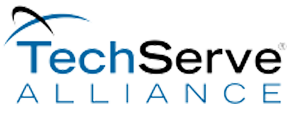Talent Shortage a Challenge in an Otherwise Positive Outlook
TechServe Alliance provides an executive overview of the IT and engineering staffing industry each quarter. In the most recent presentation closing the first quarter of 2022, TechServe Alliance CEO Mark Roberts was joined by Jim Janesky, Senior Advisor with the Corporate Advisory Group of Peapack Private Investment Banking, for a discussion about the state of the staffing industry and their projections for what’s to come.
The Economic Context
TechServe Alliance has been tracking IT and engineering employment indices for around 15 years, and the current situation is summed up succinctly: there are simply not enough people to fill the available jobs. “It’s a story of a supply challenge. Before the pandemic, we were flat in IT employment,” Roberts says. “We hit a low ebb of 4.2% in July 2020 at the height of the pandemic, and we’ve been aggressively climbing out of that.” In fact, employment in IT and engineering is up 1.79% year over year.
Jobless rates are at pre-pandemic levels as well, with IT and engineering unemployment at 2.1 and 2.2%, respectively (compared to the overall unemployment rate of 4.2%). Naturally, there’s significant variation within fields. In engineering, for example, the unemployment rate for engineering managers is 4%, versus an industry-low of 0.6% for industrial engineers. Similarly in IT, web developers are in high demand with an unemployment rate of only 1.9%, while there’s greater availability for computer programmers with a rate of 3.9%.
In short, a solid economic footing set the stage for a quick recovery post-pandemic. The IT and engineering markets are outperforming the staffing industry overall. Penetration for consultants is at an all-time high, as more employers are looking for ways to convert fixed costs to variable costs. Demand is strong; supply is the issue.
This kind of economic data is helpful to share with clients. As Roberts points out, in situations where a client’s hiring process is moving slowly, or where their bill rate isn’t competitive, “it’s a way to educate them on the state of the talent market, and how tight the talent pool is.”
Public Policy Developments to Watch
The policy and regulatory environment is complex and changing. Generally speaking, although the Biden administration has brought a return to pro-labor policies, the administration has been engaging productively with the business community.
Emerging from the pandemic, we’ve seen industry pushback on vaccine mandates, particularly the executive orders related to federal employees and contractors, both of which have been challenged. Expect more uncertainty ahead, as new waves of COVID in Europe and Asia raise questions about the potential impact here.
On the immigration front, the denial rate for H-1B visas has returned to previous rates from the 20%+ range in 2018 and 2019. DHS and USCIS have a 9 million case backlog, however, so delays are still likely. TechServe Alliance is carefully watching at tempts – including bipartisan legislation proposed by Senators Durbin and Grassley – which would put staffing in a different category than employers. TechServe Alliance’s focus is to ensure that the technology staffing industry is not discriminated against in terms of access to H-1B visas.
The ability for high-tech entrepreneurs to continue to self-select independent contractor status is a TechServe Legislative and Regulatory priority. Roberts submitted comments on behalf of the association to the Department of Labor, saying “TechServe supports the Final Rule which provides clarity to both IT and engineering independent contractor entrepreneurs and our members who want to hire them.”
Lastly, TechServe Alliance is also closely watching developments related to non-compete clauses. There is regulatory momentum to curtail the use of clauses that would limit worker mobility. In addition to the regulatory framework, some companies are simply pulling back on their use of non-competes, as it’s difficult to track which states allow them and which don’t.
What Lies Ahead
“We do expect the economy to slow in 2022,” Janesky says. Real GDP – a good proxy for IT – saw an increase of 7% in Q4 2021, but future forecasts are being pulled back. GDP growth is now projected at only 3% for 2022. These projections have been, and will continue to be, subject to change. Economists have difficulty making reliable predictions in volatile times, and we’ve moved from one volatile period – the pandemic – directly into another, with the conflict in Ukraine. Inflation, especially rising food and energy costs, has caused consumer confidence to falter. Consumers are no longer flush with cash, and with consumer spending accounting for 65% of GDP, the impact is significant.
“Despite that,” Janesky says, “the IT market is very robust. In fact, it could perform better than any other industry except healthcare and life sciences. Candidate constraints are really the only thing holding back growth.”
Roberts agrees, pointing out that this is the ‘good’ problem. “Compared to a lack of demand, it’s a much better place to be. Nevertheless, it’s a challenge. Those who are able to find talent in creative ways are those who will thrive.”
To sum up, the prospects for the industry are bright. Janesky projects engineering staffing to be up by 8% in 2022, and IT staffing by 10% – making it a record year. There are corresponding challenges, however. The tight market for talent is leading to high rates of wage inflation, and margins will depend on the ability to pass increases through to clients. Fortunately, this is more possible in IT than in other industries. The wage inflation doesn’t just affect candidates placed, however; recruiting staff are also affected. There has been an increase recently in the hiring of internal recruiters away from staffing firms at inflated salaries.
TechServe Alliance members can access the recent State of the Industry: A Quarterly Executive Webinar Series through the TechServe Online Learning Center.













